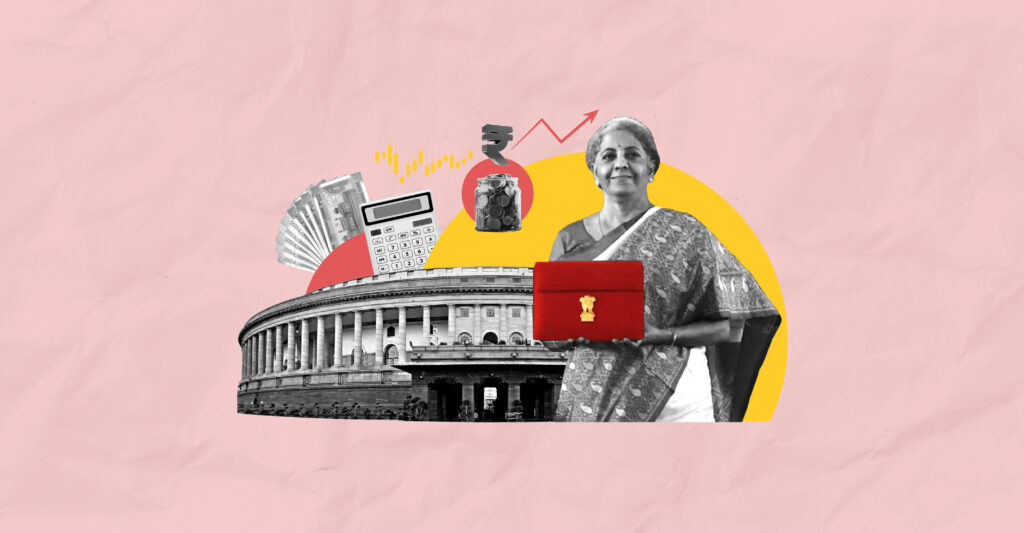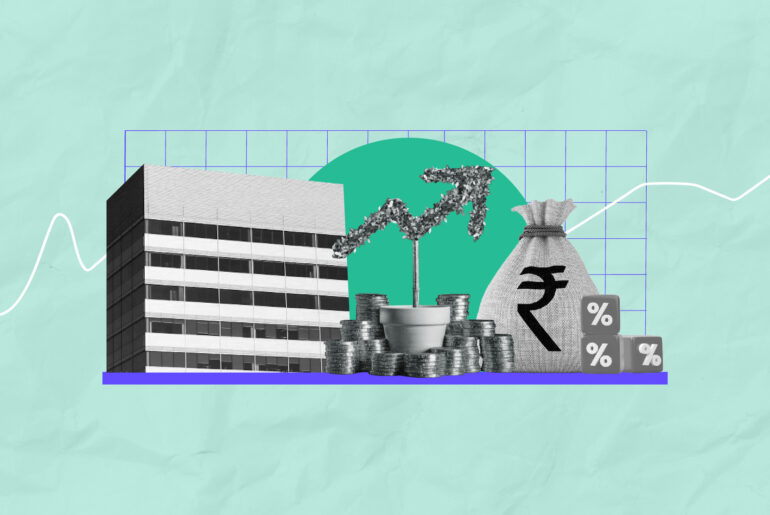Last Updated on May 24, 2022 by
The Ministry of Finance or the ‘Vitta Mantralaya’ was formed in 1946. As the name suggests, the Ministry concerns itself with the country’s economy and finances. The Ministry is under the jurisdiction of the Prime Minister of India, headquartered in Delhi.
Taxation, financial legislation, capital markets, Centre and State finances, and the Union Budget are a part of the Ministry of Finance’s remit. It is a vital Government ministry that functions as the Indian Treasury Department.
Different departments of the Ministry of Finance
- Department of Economic Affairs
The Department of Economic Affairs is the Union Government’s nodal department, and it operates under the Right to Information (RTI) Act. Except for the railway budget, the department’s major activity concerns itself with Budget creation every year.
It also formulates and supervises the country’s economic policies, both internal and external. It supervises the country’s macroeconomic activities, which are tied to the capital markets, including the stock exchanges. Additionally, it was the following functions :
- It is in charge of both the internal and exterior parts of the country’s economic strategies and programmes
- The department, with the exception of the railway budget system, develops the Union Budget every year
- It also boosts the country’s external resources through utilising multilateral and bilateral official development assistance, as well as commercial borrowings from other nations, foreign direct investments, foreign exchange reserves, and the balance of payment
- With the help of market borrowings, taxation, the collection of small savings, and the regulation of the money supply system, the department contributes to increasing the country’s internal resources
- It is essential in the production of banknotes and coins of various denominations
- It also makes available postal stationery, postal stamps, and many more
- The Indian Economic Service’s cadre management, career planning, and training are all important to the Department of Economic Affairs (IES)
- It is primarily responsible for loan disbursement as well as loan debt servicing
Note: The Foreign Investment Promotion Board (FIPB), based in the Ministry of Finance’s Department of Economic Affairs, was an inter-ministerial organisation in charge of processing FDI requests and providing recommendations to the Government. However, FIPB has been dissolved by Finance Minister Arun Jaitley, as stated during his 2017-2018 budget speech in the Lok Sabha.
The current secretary of this department is Shri Tarun Bajaj.
- Department of Expenditure
The Department of Expenditure and its establishment is responsible for enforcing fiscal rules and regulations, which include the service status of all Central Government employees.
The setup division of this department work on a variety of issues, including deciding on employee salary structures and grades, wage policies, pay scale system revisions, the creation of additional roles, and basic rules governing payment structure settlement.
House rent allowance, daily travelling allowance, luxury allowance, and many more indemnification allowances for the Central government personnel are also issues of concern for this department.
The Establishment Division, Plan Finance I and II Divisions, Finance Commission Division, Staff Inspection Unit, Cost Accounts Branch, Controller General of Accounts, and Central Pension Accounting come under the preview of the Department of Expenditure.
The current secretary of this department is Dr T. V. Somanathan.
- Department of Revenue
Through two statutory Boards, the Central Board of Direct Taxes (CBDT) and the Central Board of Indirect Taxes and Customs (CBITC), this department exercises authority over all Direct and Indirect Union Taxes (CBIC). Each board is led by a chairman who is also the Government of India’s ex-officio Special Secretary.
The CBDT is responsible for the levy and collection of all Direct Taxes, whereas the CBIC is responsible for the levy and collection of Customs and Central Excise charges, as well as other Indirect Taxes. The Central Board of Revenue Act of 1963 established the two boards.
Members are also ex officio Secretaries of the Indian Government. CBDT’s members are as follows:
- Member (Income Tax)
- Member (Legislation and Computerisation)
- Member (Revenue)
- Member (Personnel & Vigilance)
- Member (Investigation)
- Member (Audit & Judicial)
- Department of Financial Services
This department primarily concerns itself with reforms pertaining to India’s banking, insurance, and pension sector. Manging the credit flow in the economy, from farmers to the middle class, is one of its core functions.
The Flagship schemes, including Pradhan Mantri Jan Dhan Yojana (PMJDY), Pradhan Mantri Suraksha Bima Yojana (PMSBY), Pradhan Mantri Mudra Yojana (PMMY), Atal Pension Yojana (APY), and also the Stand Up India Scheme, are all overseen and managed by this department.
The department ensures policy support to Public Sector Banks (PSBs), Public Sector Insurance Companies (PICCs), National Bank for Agriculture and Rural Development (NABARD), Small Industries Development Bank of India (SIDBI), India Infrastructure Finance Company Ltd. (IIFCL), National Housing Bank (NHB), Export-Import Bank of India (EXIM Bank), Industrial Finance Corporation of India (IFCI) etc.
Department of Financial Services also concerns itself with legislative and policy issues of regulatory bodies i.e. the Reserve Bank of India (RBI), the Insurance Regulatory and Development Authority of India (IRDAI), and the Pension Fund Regulatory and Development Authority (PFRDA).
The current secretary of this department is Shri Debasish Panda.
- Department of Investment and Public Asset Management
The Department of Disinvestment has been renamed the Department of Investment and Public Asset Management, or ‘DIPAM,’ to better manage the Centre’s equity investments, including its disinvestment in Central Government companies.
This department concerns itself with four key areas – strategic disinvestment, minority stake sales, asset monetisation and capital restructuring. DIPAM also overviews matters relating to the sale of Central Government equity (through offer for sale or private placement, or any other mode)
Tuhin Kanta Pandey is the current secretary of this department.
- Department of Public Enterprises
This department primarily deals with policies pertaining to Central Public Sector Enterprises (CPSEs). It is the nodal department for all the CPSEs. It concerns itself with policy guidelines on performance improvement and evaluation, autonomy and financial delegation and personnel management in CPSEs. It is also required to collect and maintain information in the form of a Public Enterprises Survey on several areas regarding CPSEs.
The bottom Line
Several Finance Ministers have gone on to become Prime Ministers, including Morarji Desai, Charan Singh, Vishwanath Pratap Singh, Manmohan Singh, and even Presidents, including R. Venkataraman and Pranab Mukherjee. Nirmala Sitharaman is India’s current Finance Minister. It is important to keep yourself abreast of the Ministry’s various departments and nuances that handle the country’s finance and economy.







